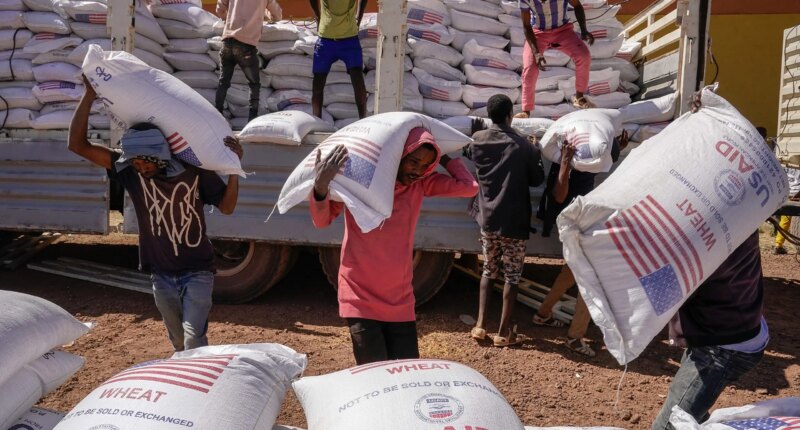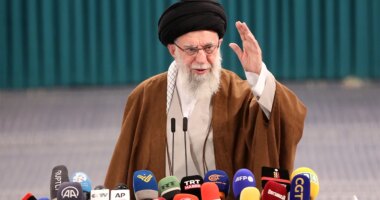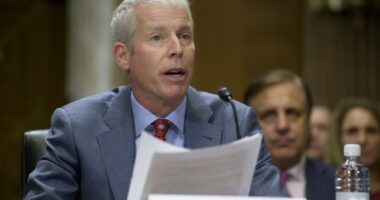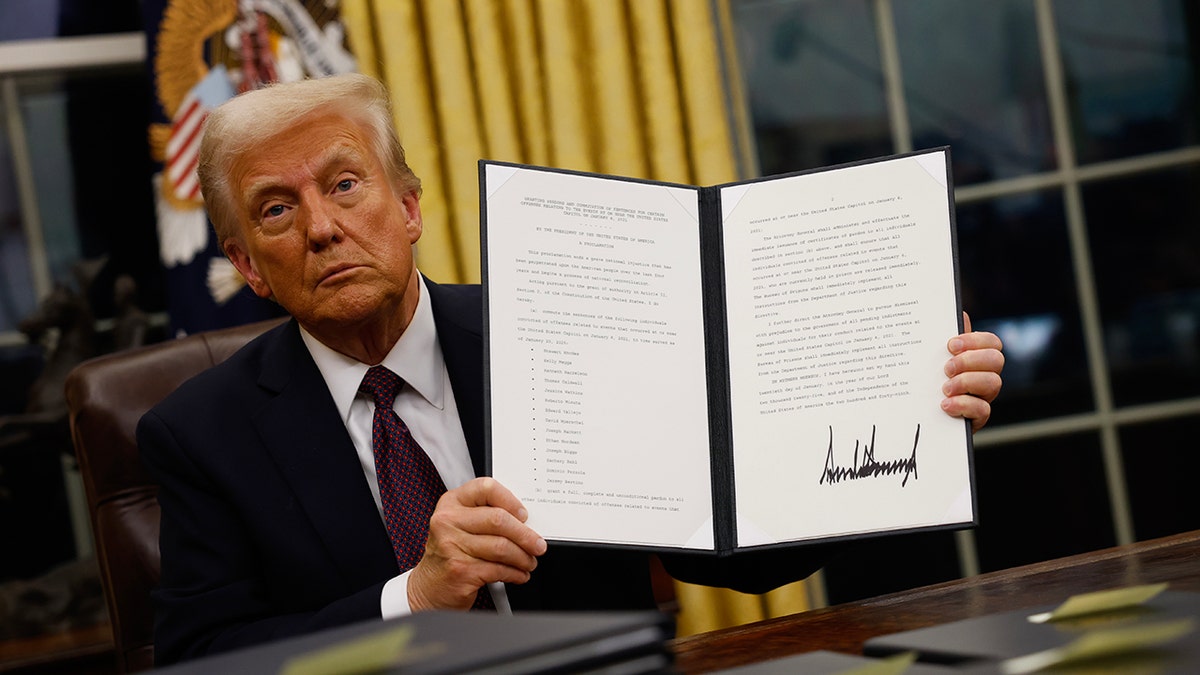
President Donald Trump signs executive orders in the Oval Office on Jan. 20, 2025 in Washington, D.C. (Anna Moneymaker/Getty Images)
According to Mahjar-Barducci, assistance can have adverse consequences. She believes that aid, especially to governments in Africa, might be harmful because it provides them with easily accessible funds that can discourage the development of an entrepreneurial mindset and impede progress towards peace in conflict-ridden regions.
Despite criticism from some Westerners, particularly those on the radical left, for President Donald Trump’s decision to temporarily halt U.S. foreign aid, many African intellectuals supported the new administration’s approach.
Mahjar-Barducci highlighted a recent article by Nigerian expert Mfonobong Inyang, titled “Wake Up Africa, Foreign Aid Is Not A Development Strategy.” Inyang argues in his piece that foreign aid should be viewed as a short-term relief measure and intervention rather than a long-term policy for any nation aiming to maintain its autonomy.
Mahjar-Barducci said, “Many African economists are saying that the suspension of USAID funding, offers an opportunity to redefine the African countries’ development strategy, and establish an ‘Africa-first approach,’ based on direct investments, innovation, partnerships, (and) empowering local governance.”
On Sunday, The Associated Press reported that some 1,600 posts at USAID would be eliminated after reviewing notices that were sent to USAID workers.
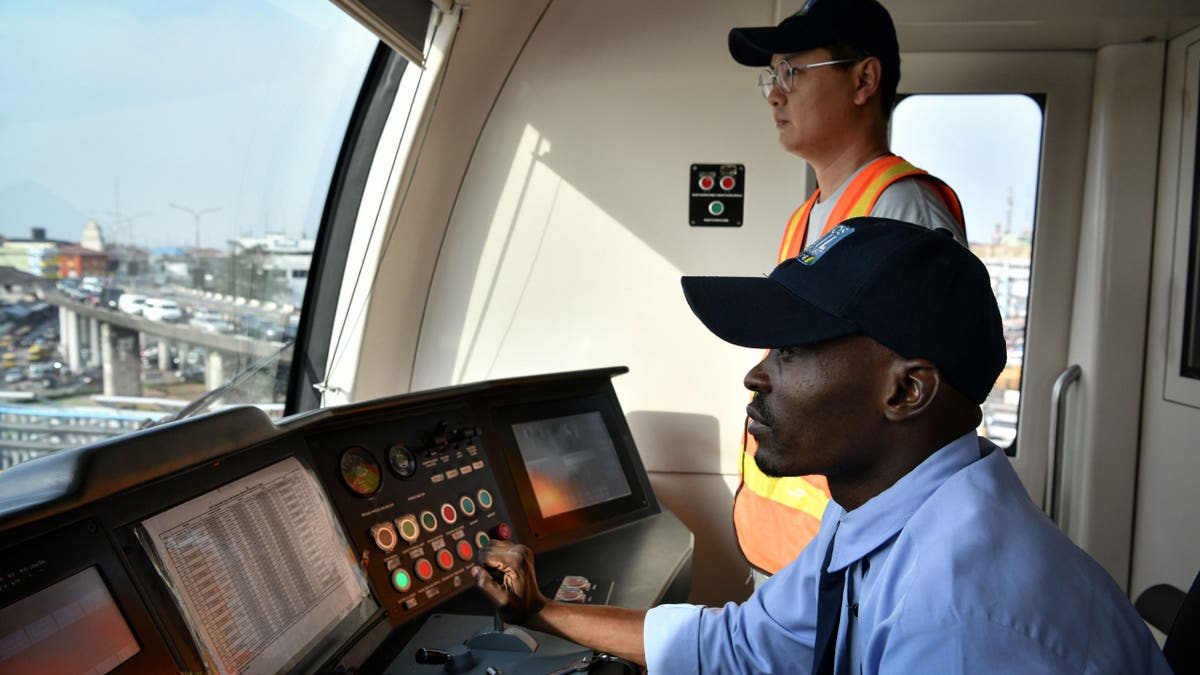
Chinese driver Wang Aofei, top, and a local driver co-drive a train of the Lagos Rail Mass Transit LRMT Blue Line in Lagos, Nigeria, March 2, 2024. (Han Xu/Xinhua via Getty Images)
Enter the dragon. China is whipping its Belt and Road Initiative into a virtual frenzy in Africa. Beijing has invested over $700 billion in infrastructure development on the continent in the decade up to 2023, according to China’s commerce industry.
Cronje said that when it comes to Africa, China already believes in pushing trade, rather than aid, “in terms of both foreign investment flows and trade flows, China is a significantly more important economic partner for Africa than is the U.S. Since around 2010, Chinese trade with Africa escalated sharply in dollar terms whilst trade levels between the U.S. and Africa remained relatively flat.”
Mahdar-Barducci borrowed Ghanian economist George Ayittey’s phrase “Chopsticks Mercantilism” to describe China’s policy in Africa, commenting on “China’s dexterity in striking deals with African leaders that were stacked in its own favor. Chinese multinational companies are investing in the African continent, in exchange for access to natural resources.”
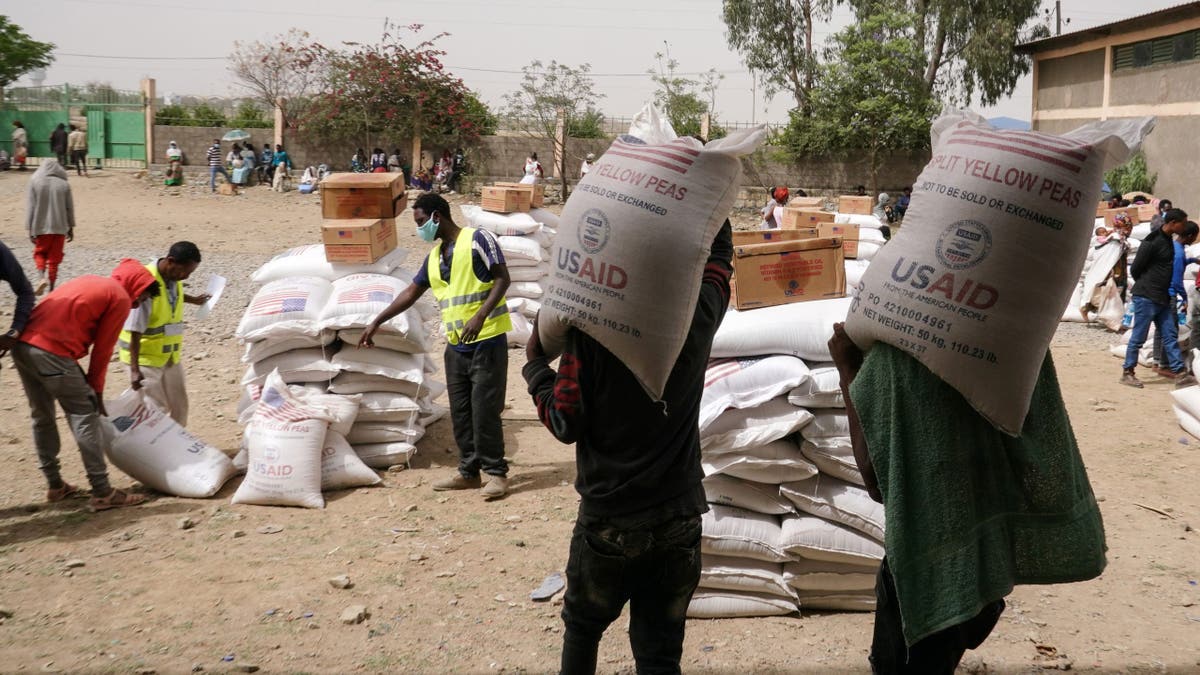
Aid workers move bags of yellow lentils that are part of a three-piece “Full Package” to be distributed to residents of Geha subcity at an aid operation run by USAID, Catholic Relief Services and the Relief Society of Tigray on June 16, 2021 in Mekele, Ethiopia. (emal Countess/Getty Images)
Cronje stated that for the U.S., instead of aid, “trade is likely to be a more effective route to securing sound economic and diplomatic relations with Africa, as it helps to build sustainable African economies without being a direct cost to American taxpayers.”
Additionally, on China, Cronje concluded, “In many respects, the U.S. is having to play catch-up in Africa. For American policy makers, the trade and investment deficit relative to China should be a more important concern than the question of future aid flows.”
